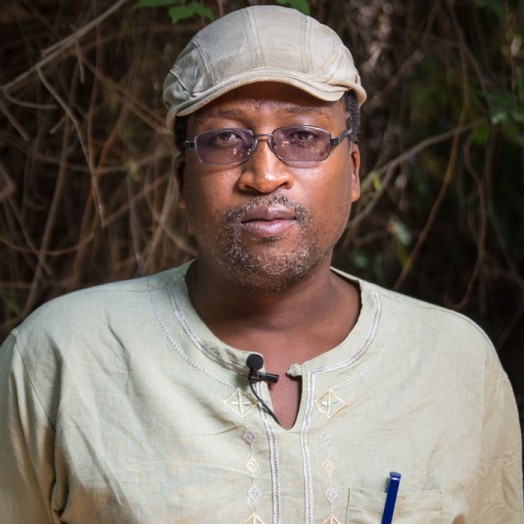
Guest Column: Takura Zhangazha
A LOCAL Zimbabwean artist, Dereck Mpofu, recently released a song titled Mweya wechiZimba. Even though the title of the song may suggest it is religious, it is upon listening to it, that you discover it is far from being so.
Instead, it is a satirical song that teems with humour on how Zimbabweans are now almost able to survive any calamity that befalls them. They jokingly talk about someone who, for example, “farmed in the desert”, adding jokingly that the person can only be Zimbabwean.
Apart from laughing with sad trepidation at the lyrics (and also appreciating the instrumentation), the song also made me think a little bit about how sometimes we occasionally refer to ourselves (Zimbabweans) as resilient or survivors, according to Mpofu.
And this, with the hindsight of one still around to tell any tale, may somewhat be true, but then only in an allegorical or symbolic sort of way. Because it is only those that survive the ongoing economic catastrophe, a cholera outbreak, natural disasters such as a cyclone that are able to live to tell how they survived.
Of late, the term “resilience” has started popping up in government or non-State actors. This is especially with regards to the national political economy. The official government economic policy of “austerity”, which is actually neo-liberalism, has been accompanied by propagandist statements such as “no pain, no gain” and a call for Zimbabweans to suffer a little in order to get to a neo-liberal and elitist destination.
State and private capital have joined hands and have created a dominant political and economic elite who are bent on promoting our situation as progress. Hence, at every turn, the government has courted the private sector to assist with the fundamentals of dealing with either natural (Cyclone Idai) or man-made (cholera outbreaks) disasters.
And given the urgency of these disaster situations, we may generally overlook the significance of this strengthening relationship between those who have the political power and those who have capital.
- Chamisa under fire over US$120K donation
- Mavhunga puts DeMbare into Chibuku quarterfinals
- Pension funds bet on Cabora Bassa oilfields
- Councils defy govt fire tender directive
Keep Reading
There has already been a consortium of private companies that are leading a reconstruction programme for Chimanimani and Chipinge as announced via full colour double-page adverts in the local print media.
On the face of it, the intention may be noble, but it would be very important for us to analyse the structure and impact of such private sector-led investments at such a large-scale.
These investments are happening with the government of Zimbabwe’s blessings.
And to do so, we must always undertake a comparative analysis of other disasters which have occurred in other countries. Where books on the same are available, we must read and learn to comprehend what exactly to make of a cordial relationship between the State and private capital.
For this, I turn to Naomi Klein’s seminal work on the Shock Doctrine: The Rise of Disaster Capitalism. In this book, Klein gives numerous examples of the devious hand of private capital in collusion with neo-liberal governments to profit from natural or man-made disasters.
From Haiti, New Orleans, through to Iraq, Klein outlines the exchanges of tenders, money and the immediate forcible removal of peoples from disaster areas to make way for new forms of enforced gentrification and privatisation of State capital.
To quote her at relative length from an article that appeared in the Guardian newspaper in mid 2017, titled How Power Profits from Disaster, she writes; “After a crisis, private contractors move in and suck-up funding for work done badly, if at all. Then those billions get cut from government budgets. Like Grenfell Tower, Hurricane Katrina revelled a disdain for the poor.”
This is potentially what appears to be emerging in the aftermath of the devastating effects of Cyclone Idai. The corporate scrambled for recognition, having donated goods and services to disaster areas. You can be sure that corporates always have vested interests in calamities that befall the ordinary people. This is what we should query.
Our queries must, however, be established on our preferred form of direct and accountable assistance to the victims of a national disaster, with three clear principles. First, that the State must take an independent and people-centred lead in providing post-disaster reconstruction and assistance. This is in order to ward off direct profit motives by private corporations that may seek to win State supply and procurement tenders or alternatively gentrify/privatise Chimanimani and other directly affected areas.
Secondly, corporations and their aid must be subject to independent and direct scrutiny with key accountability and transparency measures put in place to track not only the donations, but also the potential for crony aid in return for State favours.
Third and finally, we must come to terms with the reality that neo-liberal approaches to addressing disaster situations may give the impression of solving the immediate problems, but may, in the final analysis, cause the further disempowerment of ordinary people in favour of private capital.
While we may be caught up in the tragic and emotional conundrum of the natural disaster that has been Cyclone Idai, and even as we applaud immediate interventions by various stakeholders, we must keep an eye open on our own newer version of what quite literally would be individuals or corporates or State seeking to profit from a natural disaster.
Klein calls it, “Disaster Capitalism”.
Takura Zhangazha writes in his personal capacity takura-zhangazha.blogspot.com











